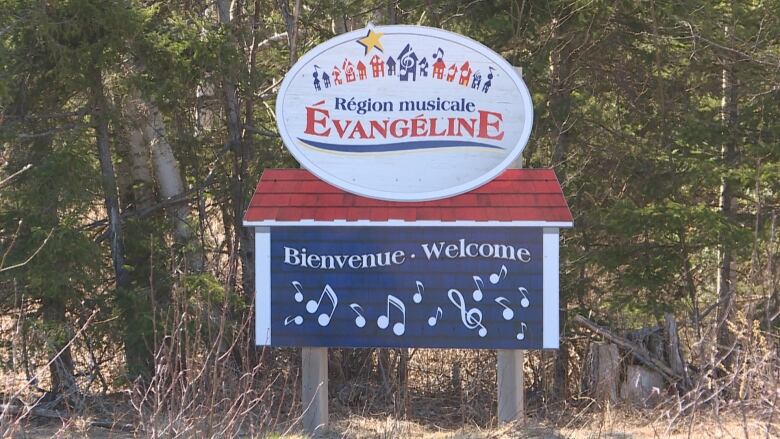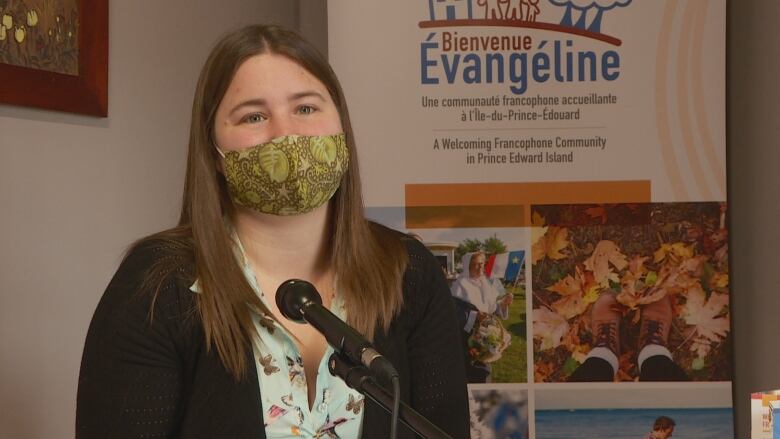Housing, communication key to keep French-speaking immigrants in P.E.I.'s Evangeline region
Bienvenue vangline pilot project is 18 months into a 3-year mandate

People working to support French-speaking immigrants in P.E.I.'s Evangeline region say after 18 months, they have more clarity on the work that needs to be done.
Better communication, more options for housing, and greater employment opportunities are just some of the needs that have been identified as part of Bienvenue vangline, an initiative centred on promoting welcoming francophone communities.
"Housing is probably the priority for us to look at," said Karine Gallant, co-ordinator of the project, which is operating in P.E.I. under the Cooprative d'intgration francophone de l'le-du-Prince-douard.
"Housing is either non-existent or very rare when it is available."

The region was one of 14 chosen across Canada to participate in the three-year pilot project tasked with identifying barriers and finding solutions when it comes to immigrant retention in francophone communities.
Officials with the project are working with mayors of local municipalities, community groups, employers, and those who work in rural development and immigration.
Gallant said through that work, a need for improved communication has also been identified: everything from where to look for housing, to how to buy a used car or where to look for work.
"We also looked at employers, so we've done big work of collecting data from employers and also leaders to see, what are their integration practices, and whether they are good practices or whether there are things we can do better on in the future," she said.

Another initiative to come out of the project so far is the Good Neighbour Network. The idea is to better organize those who wish to personally welcome newcomers, and encourage more local residents to join the effort.
Patricia Richard, community development agent with the Conseilscolaire-communautaire vangline, is heading up that initiative.
"I'm sure, knowing the people in our community, that there's so many that would be willing to do that type of thing," said Richard.
"But they might not know how, or how am I going to go about it, or am I going to offend somebody if I go there, out of the blue?"
We'd like to see people come here and have this cultural exchange, increase our numbers, and be able to offer more services in French. Patricia Richard, Conseilscolaire-communautairevangline
Richard said promotion and advertisement to attract volunteers to the network will begin soon in the area. She's hopeful many locals will sign up, and help with the effort to attract and retain more francophone immigrants to the area.
"We'd like to see people come here and have this cultural exchange, increase our numbers, and be able to offer more services in French, which is very important to community members here."
Challenges due to COVID-19
Work on Bienvenue vangline got started in the fall of 2019, with P.E.I. receiving approximately $630,000 over three years.
The team, however, was quickly stalled by the COVID-19 pandemic, with many planned brainstorming and feedback sessions either cancelled or postponed.
"We're going to look at other ways to gather that info and get people engaged in the process, even if it's not getting everyone together talking about it," said Gallant.
She's hopeful the practices and tools developed through this process will be of value not just elsewhere on the Island, but anywhere francophone communities are looking to grow their French-speaking populations in more remote areas.
"It's a pilot project, so what we are developing, there's data and info relative to here, but the process and templates are adaptable for sure for every other area," said Gallant.












_(720p).jpg)


 OFFICIAL HD MUSIC VIDEO.jpg)
.jpg)



























































































